External Affairs Minister S Jaishankar has said that India will approach the world in a more proactive way in the aftermath of COVID-19 pandemic. Delivering Sardar Patel Lecture organised by All India Radio yesterday evening, Dr Jaishankar said, some of them will be driven by a global vision of its interests that it has developed steadily over the years. He said, whether it is a deeper commitment to Africa that underlines our historical solidarity or initiatives from Caribbean to South Pacific that drive our developmental vision, this is a statement of our own evolution.
The Minister said, the pressures of the pandemic will naturally impart a different urgency to such engagements. He said, in terms of harnessing global capabilities, diplomacy abroad will match the boldness of reforms at home. Dr Jaishankar said, we will take a much more holistic approach to policy challenges and their delivery prospects. He said, Indian diplomacy will be more integrated with the defence and security needs, more supportive of the economic and commercial interests, more aware of the technology capabilities and offerings and more sensitive to the diaspora.
The External Affairs Minister said, the COVID19 pandemic has now shored up the perception of India as the pharmacy of the world. He said, India not only ramped up production to meet a spike in global demands but actually supplied medicines to 150 countries, many of them on a grant basis. He said, while engaging the different poles of an emerging global order, India will continue to give the utmost attention to its immediate neighbourhood. The Minister said, in the last few years, this was visible in political attention, as much as in commitment of resources to building connectivity. He said, as an outlook, the Neighbourhood First policy remains generous and non-reciprocal in creating the basis for shared activities in different domains. Dr Jaishankar said, the challenge of cross-border terrorism, though, is one of a kind and we have to be uncompromising in combating it. He said, if regionalism is to seriously develop, it would need not only a positive approach towards trade, connectivity and contacts but also an abjuring of terrorism as state policy.
Speaking about India-China relations, the Minister said, the ties were stable for three decades as the two nations addressed inherited challenges and new circumstances. He said, peace and tranquility in the border areas provided the basis for expanded cooperation in other domains. Dr Jaishankar said, but as the pandemic unfolded, the relationship has come under severe stress. He said, to restore normalcy, agreements between the two countries must be respected scrupulously in their entirety. The External Affairs Minister said, where the Line of Actual Control is concerned, any attempt to unilaterally change the status quo is unacceptable. He said, the relationship cannot be immune to changes in the assumptions that underpinned it.
Dr Jaishankar said, India will enter the UN Security Council for the eighth time as a non-permanent member on 1st January 2021. He said, with the passage of time, the case for a permanent presence has only grown stronger. The Minister said, starting now, India will press strongly for reformed multilateralism that would make the UN more representative of contemporary realities.
The External Affairs Minister said, India’s response to overcoming this turbulence and uncertainty is articulated in the vision of Atma Nirbhar Bharat.
Paying tributes to Sardar Patel, Dr Jaishankar said, he steered India through the immediate aftermath of Partition and shaped the firm establishment of our modern nationhood. The Minister said, Sardar Patel’s assessment of the landscape and the hurdles that we may face was always grounded in realism.
Minority Affairs Minister Mukhtar Abbas Naqvi presided over the event in the presence of Minister of State for External Affairs V Muraleedharan. Prasar Bharati CEO Shashi Shekhar Vempati was present on the occasion.

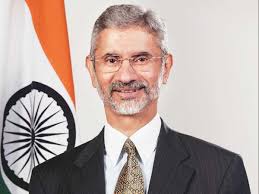
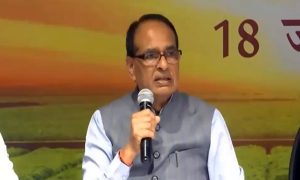

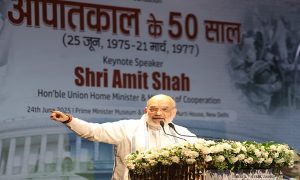

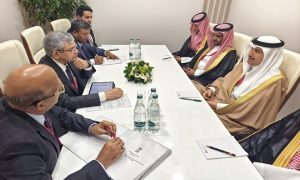

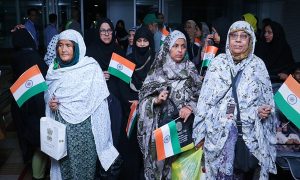

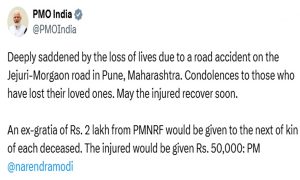

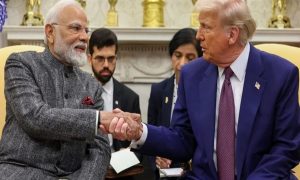

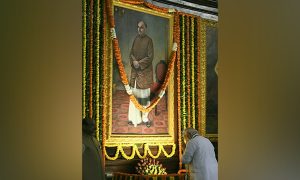

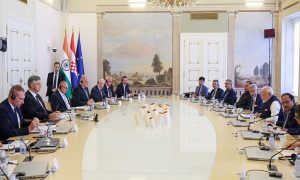

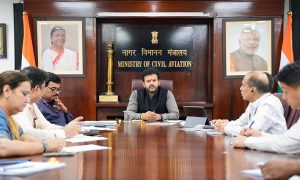

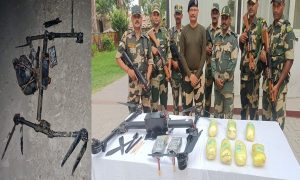

 WhatsApp us
WhatsApp us